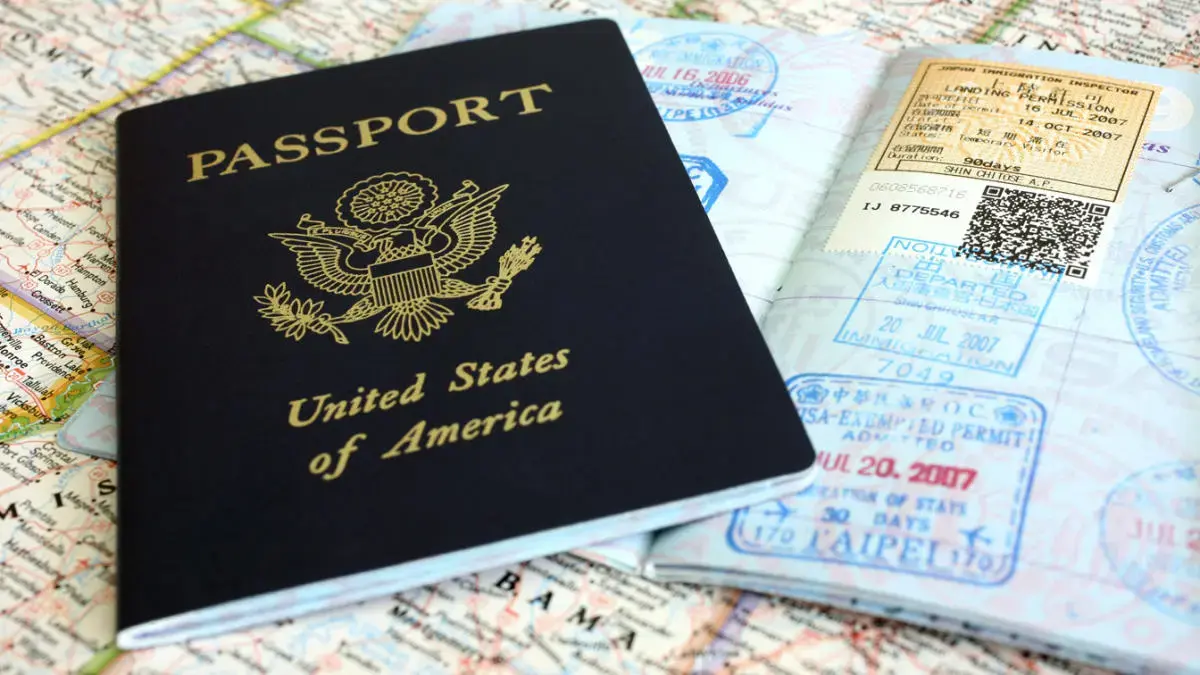
It’s technically not a visa but an electronic travel authorization much like the US and Canada have.

Exactly - the title and the article is incorrect. Americans will still be afforded a visa-on-arrival for tourism and other approved short term stays. Additionally, the authorization is valid for three years and can be used for multiple stays within the EEA. I believe the UK is also implementing an ETA (edit, maybe I got the acronym right this time), but I think it is only valid for two years at a time.
In a way it’s silly, but it also reduces that chance of a disruption/entry denial at the entry point to the Area.

Because “including Spain, France and Greece” is a rather lacking description for 30 European countries:
Austria, Belgium, Bulgaria, Croatia, Cyprus, Czech Republic, Denmark, Estonia, Finland, France, Germany, Greece, Hungary, Iceland, Italy, Latvia, Liechtenstein, Lithuania, Luxembourg, Malta, Netherlands, Norway, Poland, Portugal, Romania, Slovakia, Slovenia, Spain, Sweden, Switzerland

Maybe they’re selected because they’re the most popular destinations? (Nor sure if that true, but it would make sense)

I feel bad for brevity in the presence of such criticism.

Im sorry, English is not my first language and don’t understand what you mean, could you explain me?

It’s okay, I’m a native English speaker and don’t understand what they’re saying.

The criticism is that most EU countries were omitted in the description. Having to list them, while complete, is the opposite of a short summary which most reporting aims for. Hence, the death of brevity. Criticizing the description as an omission is not only pedantic but ultimately makes the content worse.

Thos article is about the EU, not sure what Switzerland, Iceland, Liechtenstein am Norway do in that list…
- It’s not a visa but an ESTA. The visa is still granted on the fly on entry.
- The U.S. require the same the other way around, only the one granted by the EU is $10 cheaper and valid for 3 years instead of 2, so still U.S. citizens get an advantage
- EU citizens (like all other non-immigrants) have to, as far as I understand, disclose all their social media accounts when applying for a US visa
Sources for (3):
For VISA applications, https://travel.state.gov/content/dam/visas/Enhanced Vetting/CA - FAQs on Social Media Collection - 6-4-2019 (v.2).pdf should apply.
What if applicants participate in multiple online platforms? Are they being asked to list all of their handles, or only one?
Applicants must provide all identifiers used for all listed platforms.
I reached that document via https://www.ustraveldocs.com/de/de-gen-faq.asp#qlistgen21 (“Apply for a U.S. Visa in Germany”) and didn’t find any hint for exemptions for German citizens or E U citizens, so I assume it applies. (But I might still be wrong.)

Simply wow, this one is new to me. Guess I would never go to the US again.

Genuine question, how the heck do people who have a ton of social media accounts (some for a business, some for different topics, some they haven’t used in ages and maybe forgot about or lost the login for) actually list them all? If it were me, depending on the platforms required, I don’t even know where I’d begin. I very well might genuinely forget one I made 3 years ago, used for a month, and abandoned.

Does my pornhub account qualify as social media?

Depends on what you’re watching, I guess. Imo, gangbang should count as social media while masturbation probably doesn’t.

What if I don’t disclose my social media accounts? How are they going to know? It feels like to me like more surveillance they’re attempting to do.
⁸I don’t know what data they have at hand to work with, the following is mainly guesswork / how I would do it:
As far as I know, US authorities have quite liberal access to data stored by US companies (due to the cloud act even if the data isn’t originally stored in the US), especially in case the data is about non-citizens where some of their protection laws don’t hold. Most social media accounts are tied to phone numbers and/or email addresses.
If I was in their place, I’d have a relatively small database with all (or at least all non-US) phone numbers used for social media accounts, with the email addresses tied to those accounts. If a visa-applicant applies and I get their phone number (email address),
- I’d query a list of all accounts for that number (email) to get the associated emails (numbers).
- With those new emails (numbers) I’d repeat step 1
If you call the office or enter your number in your application, they might get some accounts. If you associated an email address to that account, they might get additional different accounts by that email. If those different accounts have a different phone number associated to them, they use that new phone number to get more accounts. rinse, repeat.
[Edit: This process would be completely automated, of course. Not manual.]
The consequence of being caught lying might be to get your visa revoked / denied once you are already in the US at the airport, which would be highly inconvenient. Or, if they get suspicious, find something else, and get annoyed, maybe it could even be punished? I don’t know.
You could maintain a separate phone with a separate phone number and separate email addresses for accounts you want to keep secret. Or maybe get a fresh phone number / email address just for the trip. But that’s quite a bit of effort to maintain consistently.

I already use separate identifiers for personal and government documentation. Other people probably also have multiple numbers and emails too, it’s not like they’re going to check. It feels like a massive waste of resources.

I never had to say my social media,but I havent been in US in 2 years

*Everyone from a visa free country will need an electronic authorization, not just US-Americans

The visa, which will cost about $8, is similar to the one that European tourists are required to get when traveling to the U.S., which costs $21.
A very typical tit-for-tat.

So Europe is better value than US? $8 vs $21?

It’s 8 dollars to go to Europe. Americans get a better deal

I’m guessing because of migration. More USA citizens want to leave the US and overstay in the EU. This way its a bit more tedious and easier to track.

It’s just part of a larger expansion of a program that simply happens to include Americans. I really don’t think they care about us that much; we’re not that special.

No, it’s a diplomatic tit-for-tat. Even though the EU and US have visa-free travel, the US imposed the ESTA on travelers from the EU (and elsewhere I’m assuming) some years ago. It’s a not a traditional visa, it’s a “Travel Authorization.” And it costs money to apply for one. It’s not expensive, nor hard to get, and it lasts a few years, I think, but from the EU perspective, why should their citizens have to pay for an ESTA to the US, while US citizens can travel to the EU for free? So the EU is finally retaliating by leveling the playing field and imposing an ESTA on American travelers.

While I know some people who have emigrated from the US, most people just whine without any backbone

Can confirm, am noodle-boi

Good. They should keep us out entirely if we haven’t had a mental health exam, a cultural knowledge test, and learned the language.

Damn! Anyway…
- PatFusty ( @PatFussy@lemm.ee ) 1•1 year ago
So leave Nato when?


